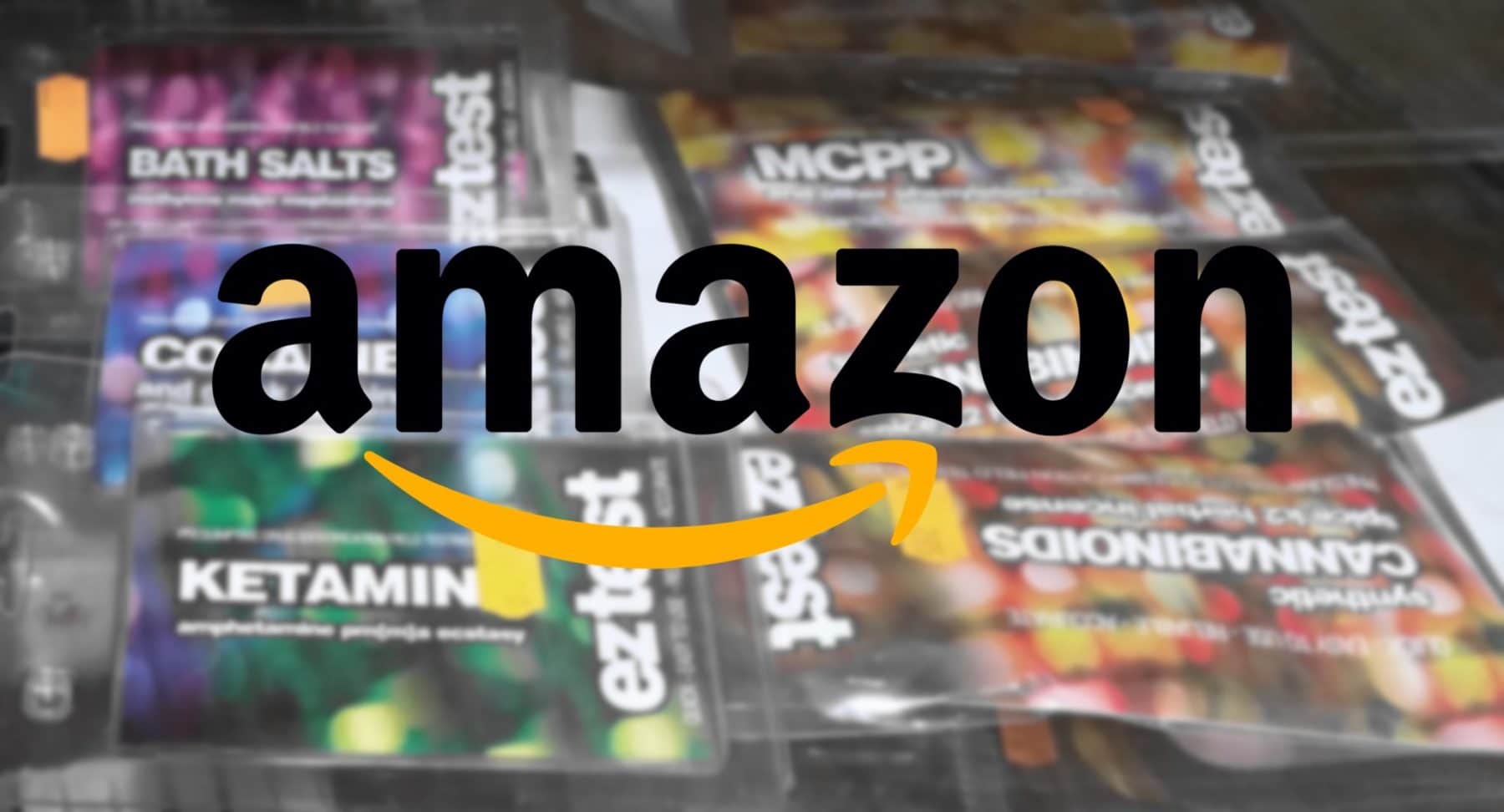Some harm reduction interventions, like safer consumption spaces, are criminalized. Others, like syringe exchanges, may precariously hold onto legal status. Similarly, drug checking kits are criminalized as drug paraphernalia in some places, and widespread commercial access is therefore blocked.
According to allegations made in the Electric Daisy Carnival Reddit forum earlier this month, Amazon recently de-listed some drug checking kits sold by vendors explicitly aligned with harm reduction. Product pages of vendors like ClariChem Mini’s and The Bunk Police now have the status “Currently Unavailable”—though it’s unclear exactly when they were deactivated.
Bunk Police began listing reagent tests kits, which are used to chemically evaluate the presence of substances in a drug sample, on Amazon around 2013, according to the company’s founder, Adam Auctor. For a while, the only issue the company faced was unknown parties flagging its products.
Mitchell Gomez, executive director of DanceSafe, a nonprofit organization that promotes health and safety in the electronic music community and also sells drug checking kits, suggests that profit-minded companies may have been trying to weed out the competition, or that anti-drug ideologues may have been aiming to limit access to these harm reduction tools.
But by 2016, Bunk Police products were in Amazon’s crosshairs. The two companies engaged in a drawn-out email battle, until the “megacorporation,” as Auctor called it, took down the products because the reagent tests were “not FDA-approved for urinalysis”—even though no claim was made that the tests served such a purpose.
“It just doesn’t make sense to get [our tests] approved,” Auctor told Filter. “They evaluate drugs, not urine.”
Another company, which asked to remain anonymous due to fear of Amazon retaliation, told Filter that its drug checking products were first taken down in November 2018, and again a few months later. According to a representative of this company, Amazon did not provide a reason for the product removal.
Similarly, Bunk Police’s “products were removed without ever having a real discussion,” said Auctor. “The way [Amazon] conducts business with those who sell on their websites is horrific.”
Discussing Amazon’s recent deactivation of some harm reduction product listings, some Reddit participants suggested that Amazon recently changed their drug paraphernalia policy. However, this is inaccurate; there have not been any changes.
Instead, Amazon has consistently maintained a policy restricting the sale of drug checking kits. The terms of service conflate reagent drug testing kits, which are simply used to detect the presence of an adulterating substance, with other products directly used for the consumption of drugs, like bongs and pipes. This means that Amazon is classifying the kits—which themselves are legal under federal law—as drug paraphernalia. (Over 40 states also consider them to be paraphernalia, which can lead to misdemeanor charges for distribution or possession, even without other drug charges.)
Amazon has a stricter policy than some of its competitors, like Ebay, which doesn’t include products used to test controlled substances in its definition of drug paraphernalia. Bunk Police has been able to list drug checking kits on Ebay.
The whole point of drug checking, according to the Drug Policy Alliance, is to keep people safe, allowing them “to help identify the substance they intend on taking and therefore prevent harms associated with consuming an unknown substance.” Widespread access to drug checking kits is a critical form of harm reduction, although some advocates do urge suppliers to be cautious about where they sell kits.
Gomez, for example, doesn’t think selling drug checking kits on Amazon is safe in the first place. “All it could take is a cop calling up Amazon and asking for a list of every customer purchasing a kit,” he said. “They don’t take data privacy very seriously.” That’s why DanceSafe has never sold on the site, said Gomez.
At publication time, no evidence in the public domain suggests that Amazon discloses customer information to law enforcement on request. But Amazon does frequently provide government agencies with user data.
Auctor doesn’t agree with DanceSafe’s attitude towards Amazon. “If [information privacy is] something that customers were concerned about, they would be using [the anonymous browser] Tor,” he said. For Auctor, the possibility that information would be shared with law enforcement is “not a reason to limit access to a sales portal.”
The question of whether or not to list on Amazon is inconsequential to Gomez, however. For him, the harm reduction fight should not be aimed at corporate inclusion. Simply put, “You’re not going to convince Amazon,” he said.
Instead, activists like Gomez believe that government regulations need to change. That way, people who use drugs are not beholden to the ethics (or lack of them) of e-commerce sites.
“We have to change state law,” Gomez said. “[Students for Sensible Drug Policy] and DPA and DanceSafe are currently working on drug paraphernalia laws. We just won in Maryland, and are now moving on to Colorado, where we have support from many in the state government.”
“People need to understand where the fight is. It’s a slow fight—not a quick one”
Image: Flickr / Amazon





Show Comments